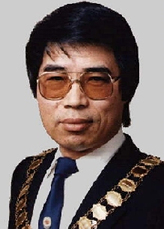|


Taekwondo history
Introduction
Taekwondo is a Korean martial art which can trace its origins and evolution back about 2,000 years in Korean history back to the first and second centuries. In its modern form, it is practised in about 120 countries world wide as a martial art, self defence system and competitive sport. Taekwondo also offers self development, physical fitness activity, physical and technical skills development, participation with others in shared experience and personal accomplishment.
|
 |
History of Taekwondo in the UK
Most people by now know the History of Taekwondo, but what about the history of Taekwondo in this country.
In 1967 a black belt by the name of Mr.Rhee Ki Ha arrived in Britain opening up his first School. This came about because RAF Servicemen stationed in Singapore had expressed their desire to continue their Taekwondo training on arrival back in Britain. And as so Taekwondo in the United Kingdom was born.
Every Taekwondo Student, Instructor and Master would hope to be like Grandmaster Rhee Ki Ha 9th Degree who is the best practitioner of Taekwondo of all time.
If it were not for him then Taekwondo would not be the size that it is today in Europe. Grandmaster Rhee Ki Ha has for many years been a pioneer in the field of Taekwondo, which was founded by General Choi Hong Hi, He invented the art during the Japanese occupation of Korea. General Choi gave the world Taekwondo in its purest form.
30 years after introducing Taekwondo to the United Kingdom Master Rhee Ki Ha was promoted to 9th Degree Grandmaster.
|
|
The Tenets of Taekwondo
At the end of each lesson the whole class recite the tenets of Taekwon-do. The tenets are as much a part of Taekwon-do as is a front punch or a sidekick.
In his 15 volume manual of Taekwon-do, General Choi Hong Hi, 9th degree, describes
the tenets in his own words: -
"Needless to say, the success or failure of Taekwon-do training depends largely on how one observes & implements the tenets of Taekwon-do which should serve as a guide for all serious students of the art."
COURTESY (Ye Ui)
Taekwon-do students should attempt to practise elements of courtesy to build up their noble character & to conduct the training in an orderly manner as well.
1) To promote the spirit of mutual concessions
2) To be ashamed of one's vices, contempting those of others
3) To be polite to one another
4) To encourage the sense of justice & humanity
5) To distinguish instructor from student, senior from junior & elder from younger
6) To behave oneself according to etiquette
7) To respect others possessions
8) To handle matters with fairness & sincerity
9) To refrain from giving or accepting any gift when in doubt
INTEGRITY (Yom Chi)
In Taekwon-do, the word integrity assumes a looser definition than the one usually presented in Webster’s
dictionary. One must be able to define right from wrong & have the conscience, if wrong, to feel guilt.
PERSEVERANCE (In Nae)
There is an old oriental saying. "Patience leads to virtue or merit". "One can make a peaceful home by
being patient for 100 times." Certainly, happiness & prosperity are most likely brought to the patient
person. To achieve something, whether it is a higher degree or the perfection of a technique, one must set
his goal, then constantly persevere. Robert Bruce learned his lesson of perseverance from the persistent
efforts of a lowly spider. It was this perseverance & tenacity that finally enabled him to free Scotland in
the fourteenth century. One of the most important secrets in becoming a leader of Taekwon-do is to
overcome every difficulty by perseverance.
Confucius said; "one who is impatient in trivial matters can seldom achieve success in matters of great
importance."
SELF-CONTROL (Guk Gi)
This tenet is extremely important inside & outside the dojang, whether conducting oneself in free sparring or in one's personal affairs. A loss of self-control in free sparring can prove disastrous to both student & opponent. An inability to live & work within one's capacity or sphere is also a lack of self-control.
According to Lao-Tzu "the term of stronger is the person who wins over oneself rather than someone else."
INDOMITABLE SPIRIT (Baekjul Boolgool)
"Here lie 300, who did their duty." a simple epitaph for one of the greatest acts of courage known to mankind.
Although facing the superior forces of Xerxes. Leonidas & his 300 Spartans at Thermopylae showed the world the meaning of indomitable spirit. It is shown when a courageous person & his principles are pitted against overwhelming odds.
A serious student of Taekwon-do will at all times be modest & honest. If confronted with injustice, he will deal with the belligerent without any fear or hesitation at all, with indomitable spirit, regardless of whosoever & however many the numbers may be.
Confucius declared; "it is an act of cowardice to fail to speak out against injustice." As history has proven, those who have pursued their dreams earnestly & strenuously with indomitable spirit have never failed to achieve their goals.
|
|
|
|
|
|
|
|
|
|
|